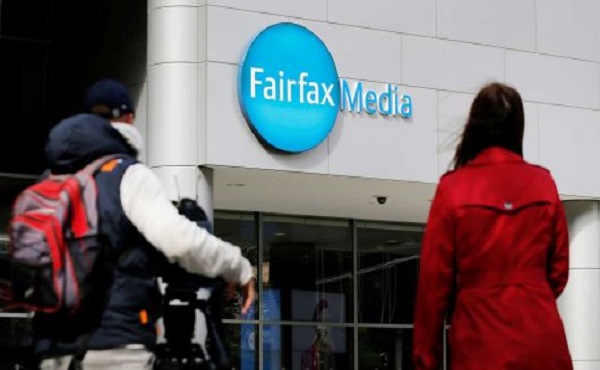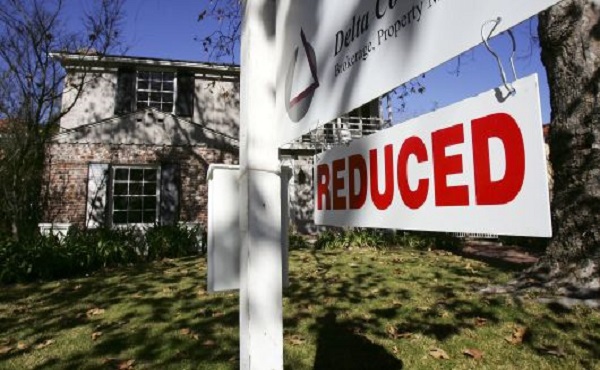Australia's real estate boom has Wall Street wooing a newspaper publisher

Wall Street has started a bidding war for Fairfax Media, an Australian company best known for the dowdy business of publishing newspapers. To understand why, look no further than Deanna McMath.
Ms. McMath, owner of a small business specializing in print and design, is trying to determine the value of the fixer-upper house she bought in 2009 in the Sydney suburb of Stanmore, and whether to sell it and cash in on the area's wild property boom. Where she once would turn to the real estate pages of The Sydney Morning Herald, a Fairfax paper, she now scours two online real estate portals: Realestate.com.au, which is part of Rupert Murdoch's media empire, under News Corporation, and Domain, which has quietly become Fairfax's most lucrative business.
"They're the only two sites I go to," she said. "There's nothing in the papers. You don't pick up The Herald anymore on a Saturday to see what's for sale."
More from New York Times:
Behind the scenes at Orchard Platform, a struggle to innovate
China's ill, and wealthy, look abroad for medical treatment
The Ringer, Bill Simmons' site, will switch its host to Vox Media
Australia's two biggest cities — Sydney and Melbourne — are having an extended, how-long-can-it-last surge in property prices, and for global investors, Fairfax's Domain offers a piece of the action.
Two large American private equity firms, TPG Capital and Hellman & Friedman, are bidding to buy Fairfax, valuing the company at nearly $3 billion. That isn't bad for a company that, just weeks ago, said it would have to sharply reduce staffing at many of its newspapers to contain costs.
Australia's remarkable — and unbalanced — property boom appears to be the driver behind the bids.
"They've formed an investment thesis that real estate's just got a lot of value in it," Damien Tampling, a partner in Deloitte Australia's technology and media practice, said of the bidders for Fairfax.
That has raised concerns that the intense focus on a real estate market that may or may not keep growing will put at risk Fairfax's most visible assets: major newspapers including The Sydney Morning Herald and The Age, based in Melbourne. Staff members at those papers went on a weeklong strike this month over imminent job cuts, and they fear that both Fairfax bidders would further shrink print operations in order to invest in the company's digital real estate advertising arm.
The bidding war also sets up another battle, between News Corporation, one of Australia's biggest media companies, and well-funded Wall Street investors bent on making money from Australians' fascination with property prices.
Sensitive to the worries about what a deal might do to Australia's media landscape, TPG has pledged to nurture the newspapers. Hellman & Friedman officials have declined to comment. Fairfax owns community newspapers and has interests in online video, digital publishing and radio.
Australia as a whole is grappling with a slowdown in demand for the iron ore, coal, milk and other resources it exports to China and elsewhere. As Australia's growth has slowed, its central bank has cut interest rates to help keep the economy humming.
But Sydney and Melbourne stand as glaring exceptions, making the country something of a two-track economy. Those two cities are experiencing much stronger job creation and economic growth, and the low interest rates translate into cheaper mortgages for people there, making buying and selling a lot more attractive.
As a result, both cities are experiencing a property boom. Until last year, when the overall Australian market slowed, Sydney and Melbourne regularly had double-digit annual growth in house prices. Elsewhere in the country, the growth was slower, or even negative.
"The Australian housing market is going gangbusters," said Terry Rawnsley, an economist with SGS Economics and Planning. "Wages and profits are up in Sydney and Melbourne, so people have got more money in their pockets."
The listings business offers a way to cash in on the boom. Domain's digital revenue grew 15 percent in the six-month period that ended in December while Fairfax's overall revenue dropped almost 5 percent. Fairfax's revenue fell about 2 percent in its fiscal year that ended last June.
Like many media companies, Fairfax is struggling to keep readers as the number of news outlets online grows. The company's stock, which has surged since the bidding began, is still below the levels it reached before the global financial crisis, even as the broader Australian market has bounced back.
Domain and Realestate.com.au enjoy a duopoly in selling ads for residential real estate, property agents say. Listings can cost 1,500 Australian dollars (about $1,100) per property, said Jonathan Hammond, an agent with Cobden & Hayson.
"If you want to get the right price," Mr. Hammond said, "you need to get on those websites."
Those are the sorts of conditions that can draw big private equity investors. Sometimes castigated as corporate raiders, private equity firms use money from pension funds, wealthy investors and other sources to buy a company, streamline it and resell it, often by listing it on a stock market. Sometimes private equity firms borrow the money they use to strike a deal, which can put even more pressure on the firm to turn around a company.
When it works, a company can come out in much better shape — although a number of high-profile bets have also stumbled. TPG, formerly Texas Pacific Group, got its start buying out and fixing Continental Airlines in the United States in the early 1990s, but it was also involved in the costly and troubled buyout of the Texas utility giant TXU. It now owns stakes in the Spanish-language broadcaster Univision, the room-sharing platform Airbnb and the avant-garde circus Cirque du Soleil. Hellman & Friedman, which was founded in the 1980s, has invested in the German publisher Axel Springer, the asset management firm Franklin Templeton Investments and the Nasdaq Stock Market.
Both TPG and Hellman & Friedman have investments in property-listing firms outside Australia. Greg Ellis, who is leading Hellman & Friedman's Fairfax takeover effort, runs the firm's Scout24 listings company in Germany and is a former executive at the digital advertising company REA Group, which has News Corporation as its majority owner and in turn owns Realestate.com.au.
REA said it was unfazed by looming competition with Wall Street money. "In this market, our competitors are local and global, private and public," Tracey Fellows, REA Group's chief executive, said in a statement, adding that Realestate.com.au had a sizable lead on the competition in monthly site visits.
Both TPG and Hellman & Friedman face questions from lawmakers skeptical of the impact of a deal on Australia's media landscape. Speaking at a Senate hearing in Australia this month, Joel Thickins, the head of TPG Capital's Australia operations, said the firm would not be bidding $2.7 billion for Fairfax if it did not intend "to grow the business and make it successful and sustainable over the long term." Hellman & Friedman executives are expected to testify as well, although the date has not been set.
Outside the real estate business, Fairfax staff members worry about job cuts and diminished news coverage. Speaking before another Senate committee this month, Paul Murphy, chief executive of the Media, Entertainment and Arts Alliance, Australia's national journalists' union, said, "We really are at a crossroads for public interest journalism in this country."





